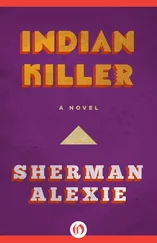“Tomorrow?”
“Yes, the funeral is tomorrow. I really want this to run on the same day. Is that okay? Will that be possible?”
I had no idea if it was possible. “Let me talk to the boys down in the print room,” I said, as if I knew them. “And I’ll call you back in a few minutes, okay?”
“Oh, yes, yes, I’ll be waiting by the phone.”
We said our good-byes and I slumped in my chair. In Lois’s chair. What had I done? I’d made a promise I could not keep. I counted to one hundred, trying to find a cool center, and walked over to the chief’s office.
“What do you want?” he asked.
“I think I screwed up.”
“Well, isn’t that a surprise,” he said. I wanted to punch the sarcasm out of his throat.
“This woman — her husband died,” I said. “And she wanted to write the obituary and run his photo—”
“That costs extra.”
“I know. I read that on Lois’s desk. But I read incorrectly, I think.”
“How incorrectly?”
“Well, I think it’s supposed to cost, like, one hundred dollars to run the obit and the size photo she wants—”
“How much did you tell her it would cost?”
“Twenty.”
“So you gave her an eighty-percent discount?”
“I guess.”
He stared at me. Judged me. He’d once been a Pulitzer finalist for a story about a rural drug syndicate.
“And there’s more,” I said.
“Yes?” His anger was shrinking his vocabulary.
“I told her we’d run it tomorrow.”
“Jesus,” he said. “Damn it, kid.”
I think he wanted to fire me, to throw me out of his office, out of his building, out of his city and country. I suddenly realized that he was grieving for Lois, that he was angry about her death. Of course he was. They had worked together for two decades. They were friends. So I tried to forgive him for his short temper. And I did forgive him, a little.
“I’m sorry,” I said.
“Well, shit on a rooster,” he said, and leaned back in his chair. “Listen. I know this is a tough gig here. This is not your job. I know that. But this is a newspaper and we measure the world by column inches, okay? We have to make tough decisions about what can fit and what cannot fit. And by telling this woman — this poor woman — that she could have this space tomorrow, you have fucked with the shape of my world, okay?”
“Yes, sir,” I said.
He ran his fingers through his hair (my father did the same thing when he was pissed), made a quick decision, picked up his phone, and made the call.
“Hey, Charlie, it’s me,” he said. “Do we have any room for another obituary? With a photo?”
I could hear the man screaming on the other end.
“I know, I know,” the chief said. “But this is an important one. It’s a family thing.”
The chief listened to more screaming, then hung up on the other guy.
“All right,” he said. “The woman gets one column inch for the obit.”
“That’s not much,” I said.
“She’s going to have to write a haiku, isn’t she?”
I wanted to tell him that haikus were not supposed to be elegies, but then I realized that I wasn’t too sure about that literary hypothesis.
“What do I do now?” I asked.
“We need the obit and the photo by three o’clock.”
It was almost one.
“How do I get them?” I asked.
“Well, you could do something crazy like get in a car, drive to this woman’s house, pick up the obit and the photo, and bring them back here.”
“I don’t have a car,” I said.
“Do you have a driver’s license?”
“Yes.”
“Well, then, why don’t you go sign a vehicle out of the car pool and do your fucking job?”
I fled. Obtained the car. And while cursing Lois and her early death, and then apologizing to Lois for cursing her, I drove up Maple to the widow’s small house on Francis. A green house with a white fence that was maybe one foot tall. A useless fence. It couldn’t keep out anything.
I rang the doorbell and waited a long time for the woman — Mona, her name was Mona — to answer. She was scrawny, thin-haired, dark for a white woman. At least eighty years old. Maybe ninety. Maybe older than that. I did the math. Geronimo was still alive when this woman was born. An old raven, I thought. No, too small to be a raven. She was a starling.
“Hello,” she said.
“Hi, Mona,” I said. “I’m from the Spokesman; we talked on the phone.”
“Oh, yes, oh, yes, please come in.”
I followed her inside into the living room. She slowly, painfully, sat on a wooden chair. She was too weak and frail to lower herself into a soft chair, I guess. I sat on her couch. I looked around the room and realized that every piece of furniture, every painting, every knickknack and candlestick, was older than me. Most of the stuff was probably older than my parents. I saw photographs of Mona, a man I assumed was her husband, and five or six children, and a few dozen grandchildren. Her children and grandchildren, I guess. Damn, her children were older than my parents. Her grandchildren were older than me.
“You have a nice house,” I said.
“My husband and I lived here for sixty years. We raised five children here.”
“Where are your children now?”
“Oh, they live all over the country. But they’re all flying in tonight and tomorrow for the funeral. They loved their father. Do you love your father?”
My father was a drunken liar.
“Yes,” I said. “I love him very much.”
“That’s good, you’re a good son. A very good son.”
She smiled at me. I realized she’d forgotten why I was there.
“Ma’am, about the obituary and the photograph?”
“Yes?” she said, still confused.
“We need them, the obituary you wrote for your husband, and his photograph?”
And then she remembered.
“Oh, yes, oh, yes, I have them right here in my pocket.”
She handed me the photograph and the obit. And yes, it was clumsily written and mercifully short. The man in the photograph was quite handsome. A soldier in uniform. Black hair, blue eyes. I wondered if his portrait had been taken before or after he’d killed somebody.
“My husband was a looker, wasn’t he?” she asked.
“Yes, very much so.”
“I couldn’t decide which photograph to give you. I mean, I thought I might give you a more recent one. To show you what he looks like now. He’s still very handsome. But then I thought, No, let’s find the most beautiful picture of them all. Let the world see my husband at his best. Don’t you think that’s romantic?”
“Yes, you must have loved him very much,” I said.
“Oh, yes, he was ninety percent perfect. Nobody’s all perfect, of course. But he was close, he was very close.”
Her sentiment was brutal.
“Listen, ma’am,” I said. “I’m sorry, but I have to get these photographs back to the newspaper if they’re going to run on time.”
“Oh, don’t worry, young man, there’s no rush.”
Now I was confused. “But I thought the funeral was tomorrow?” I asked.
“Oh, no, silly, I buried my husband six months ago. In Veterans’ Cemetery. He was at D-Day.”
“And your children?”
“Oh, they were here for the funeral, but they went away.”
But she looked around the room as if she could still see her kids. Or maybe she was remembering them as they had been, the children who’d indiscriminately filled the house and then, just as indiscriminately, had moved away and into their own houses. Or maybe everything was ghosts, ghosts, ghosts. She scared me. Maybe this house was lousy with ghosts. I was afraid that Lois’s ghost was going to touch me on the shoulder and gently correct my errors.
Читать дальше












